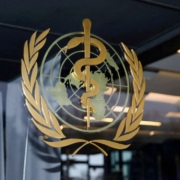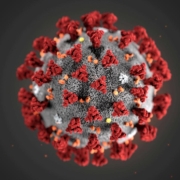The world is no better prepared for a new pandemic than it was when coronavirus emerged in 2019 and may actually be in a worse place given the economic toll, according to a panel set up by the World Health Organization (WHO) to evaluate the global response.
Cassava Sciences hits back at NYT for alleged “pre-set narrative”
Alzheimer's Diseases, Alzheimer’s, Alzheimer’s Disease, Alzheimer’s disease, Alzheimer’s disease, Brain Diseases, Centers for Medicare & Medicaid Services, CNS Disorders, Dementia, Early Alzheimer's Disease, Early Alzheimer’s, Financing, Neurodegenerative Disorders, Neuroscience, New York Times, Newspapers, Papers, R&D, R&D, Research Papers, Scientific Papers, Series ACassava Sciences President and CEO Remi Barbier is hitting back at The New York Times, calling out the venerable newspaper for an alleged one-sided article that he claims misrepresented the research of his company by only using sources who were critical of Cassava.
Ansa Biotechnologies, a California-based start-up focused on updating DNA synthesis technologies, is advancing toward the launch of a customizable DNA synthesis service, stemming from the development of a novel synthesis method.
CanSino Biologics Inc.’s single-dose Covid-19 vaccine – given at a lower dosage than that for adults – is safe and triggers an immune response in children aged 6-17, results from a small trial showed.
Severe COVID-19 may trigger autoimmune conditions; New variants cause more virus in the air
Antibodies, Autoimmune Conditions, Cancer, Clinical Trials, Covid-19 Airborne Transmission, COVID-19 Vaccines, Covid-19 Variants, Immune System, Inflammatory Diseases, Nature Communications, Papers, R&D, Researchers, Severe Covid-19, TissueSevere Covid-19 may trick the immune system into producing so-called autoantibodies that have the potential to eventually attack healthy tissue and cause inflammatory diseases, researchers warned in a paper published in Nature Communications. Another study suggests that the virus that causes Covid-19 may be getting better at traveling into the air
The body of real-world evidence around Covid-19 continues to build, and a study released Aug. 26 in The Lancet points to concerning long-term effects for hospital survivors at the one-year mark.
Biogen reportedly withdrew a paper that analyzed data from the clinical trials of the Alzheimer’s drug Aduhelm that the company submitted to JAMA after the medical journal requested edits before publication.
Researchers: Best Covid-19 Vaccines 58% Effective at 250 Days
AstraZeneca, Australia, BioSpace, BNT162b2 (Pfizer and BioNTech), Coronavirus Disease 2019 (COVID-19) Reinfections, COVID-19 Vaccinations, COVID-19 Vaccines, Covid-19 Variants, Flu Shots, mRNA-1273/Moderna COVID-19 Vaccine (Moderna), Papers, R&DNext year, people are likely to need an annual Covid-19 vaccination just like they need an annual flu shot. That prediction is made by researchers at six of Australia’s leading medical research institutions, based upon their study of the levels of neutralizing antibodies needed to confer protection against Covid-19.
A critical component of the immune system known as T cells that respond to fight infection from the original version of the novel coronavirus appear to also protect against three of the most concerning new virus variants, according to a U.S. laboratory study released on March 30.
Oxford University and AstraZeneca’s Covid-19 vaccine showed in a study it had 76% efficacy against symptomatic infection for three months after a single dose, which increased if the second shot is delayed, backing Britain’s vaccine rollout policy.

 Reuters
Reuters







